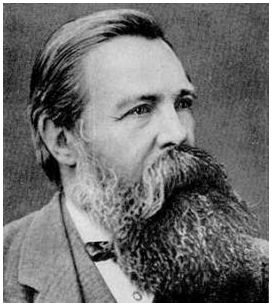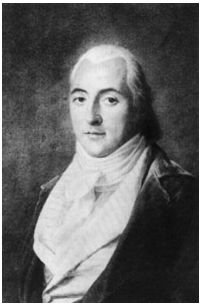Marxism: ‘Utopian Socialism’

Friedrich Engels: In 1844, Karl Marx, who up to that time was a part of the ‘Left Hegelianism’, had to exile to Paris to work on his philosophical thought.
There, he came in contact with several thinkers, representatives of a 'social philosophy' in France. These thinkers would in later times be classified as utopian socialists by Friedrich Engels (another great classic representative of 'Marxism', whom Marx met in Paris as well). This classification made them different from the 'scientific socialism' which Marxism sought to be.
These authors were a great influence on Marx, up to a point were we can well say that Marxism emerged from a dialect synthesis between the ‘utopian socialism’ and ‘Left Hegelianism’.
CLAUDE-HENRI DE SAINT-SIMON (1760-1825)

According to this author, we need to understand Human History as a constant development.
In his opinion, this originates from the constant succession of two types of epochs (or eras):
- CONSTRUCTIVE or ORGANIC EPOCH (relies on a well-established system of beliefs)
- CRITICAL or NEGATIVE EPOCH (emerges after we change the main idea upon which we have established the 'organic epoch')
Saint-Simon suggests that this process will end once we achieve a balance between both epochs; when we reach a POSITIVE EPOCH, in which no system of beliefs needs to be changed. This 'positive epoch' will be characterized by two traits:
- Temporary power: SCIENTISTS, INDUSTRIALS
- Spiritual power: PRIMITIVE CHRISTIANITY.
The 'utopian' characteristic of this philosophy, according to Engels, resided in the fact that Saint-Simon believed that, due to the Industrial Revolution, such 'positive epoch' had arrived.